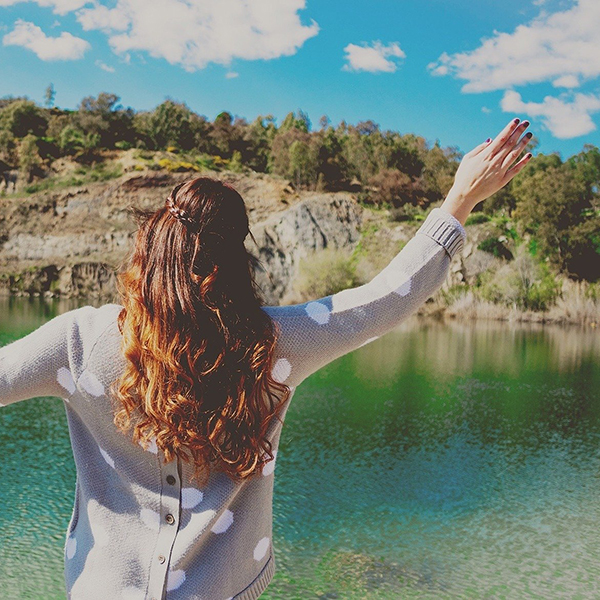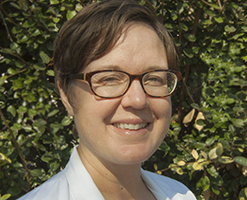 Most people don’t think about their gallbladder until extreme pain hits them in the abdomen, particularly the right upper quadrant. Imaging and liver function tests often reveal gallstones or sludge and depending on the severity, removing the gallbladder may be recommended. But making diet and habit changes sooner rather than later makes a big difference for this little but important organ.
Most people don’t think about their gallbladder until extreme pain hits them in the abdomen, particularly the right upper quadrant. Imaging and liver function tests often reveal gallstones or sludge and depending on the severity, removing the gallbladder may be recommended. But making diet and habit changes sooner rather than later makes a big difference for this little but important organ.
Why do we need a gallbladder anyway?
The main job of the gallbladder is to concentrate bile, a substance that helps you break down fat and absorb fat-soluble vitamins (D, E, A, and K). Vitamins D and A support a healthy immune system and help us fight viral infection. Healthy fats are also the main nutrition source for the brain and nervous system. Poorly absorbing nutritional fat negatively impacts cognitive health over time, increasing risks for dementia.
Bile is an exit route
Bile is the dumping ground for cholesterol, bilirubin, toxins, and bile salts. Cholesterol, a fatty signalling molecule in your blood, is dissolved in bile. Elevated LDL (or bad) cholesterol predisposes gallstones’ formation and weakens the bile. Gallstones are most commonly cholesterol stones but increased bilirubin can also create stones, just to a lesser degree. Bilirubin, the breakdown product from old red blood cells, is why your stool is brown. When stool is grey or light yellow, usually this indicates an obstruction along the bile route of the liver and gallbladder to the small intestine. This is a serious medical issue requiring urgent care.
Bile is a drain for many detox pathways from the liver and is possibly the main way we remove toxins from the body. Not having a gallbladder means the bile is not concentrated and weak, which impacts detox capability. Not to mention, bile is very alkaline–the opposite of stomach acid which brings balance from the harsh acidic environment. Weak bile usually goes with poor nutrient absorption.
Bile salts have antibacterial and antifungal properties that break down unwanted microbes from food and prevent intestinal inflammation and overgrowths of unhealthy gut flora. These salts are actually made from cholesterol. Certain medications like oral birth control and NSAIDS (acetaminophen, ibuprofen, and others) actually disrupt the bile salt formation and bile composition and increase risks for gallstone formation.1
Don’t let your bile weaken
When bile weakens you will see increased irritable bowel syndrome and SIBO (Small Intestinal Bowel Overgrowth) symptoms such as gas, bloating, nausea, diarrhea, or constipation. Supporting the alkalinity of the bile, decreasing cholesterol, and stimulating stomach acid and digestive enzymes are keys to preventing gallstones and promoting fat and nutrient absorption.
Supplementing with ox bile is an effective way to support bile composition. Products like Lipotropic Complex by Integrative Therapeutics, Digestzyme by Designs for Health, and Cholacol by Standard Process are commonly used. People who have had their gallbladders removed especially need to strengthen their bile because they are missing the organ responsible for doing so. This will drastically improve fat absorption, support liver detox, and increase fat-soluble vitamin absorption.
A non-animal source of bile support comes from the bitter herbs, the stars being dandelion root, burdock root, milk thistle, and artichoke. Biliven from Premier Research Labs is a favored vegan source for these herbs. These can be consumed as a tea, but know that bitter herbs are just that–bitter. If you tolerate the bitterness of coffee, this may not bother you. If you dislike the flavor, they exist in capsule form too!
Don’t gallbladder flush
Once a stone has developed in the gallbladder, flushing it out is actually a dangerous idea. If lodged by the common bile duct, stones create acute pancreatitis and a life-threatening situation where the pancreas cannot secrete its digestive enzymes properly and actually digests itself. Remember, gallstones formed gradually, so resolving them gradually is the more appropriate pace. Stone-dissolving protocols with the herb Chankra Piedra (like Royal Break Stone) exist, but they are used over the course of several weeks. In addition, you do have to stop the conditions that created the stone in the first place. Diet changes are paramount.
Eat right and exercise
Sugar, alcohol, dairy, grains, and processed foods are all really hard for the liver to handle which does weaken bile. The liver loves dark leafy greens, beets, bitter flavors, and foods rich in antioxidants, not to mention omega-3 fatty acids found in fish, olive oil, nuts, and seeds.
Exercise actually helps circulation through the liver. Sedentary lifestyle leads to liver stagnation and gallstone development. Accumulation of abdominal visceral fat, a more inflammatory fat, will damage tissue by concentrating free radicals and inhibit blood flow for the liver.
Losing abdominal fat will improve blood flow to hepatic tissue and reduce risks for gallstone formation. A similar phenomenon is seen post-pregnancy. Postpartum women have higher risks for gallbladder attack because for 40 weeks they have been sharing abdominal space with a fetus that has been impeding blood flow to all the abdominal organs, especially liver and gallbladder.
Don’t let intense pain be the first time you think of your gallbladder. Develop a taste for bitter herbal teas, leafy greens, and vegetables, and really watch the Standard American Diet intake. If that isn’t happening well in your diet habits, commit to a supplement that works best for you and keep it in your daily routine. Lastly, move yourself! Break the chain to your desk, TV, and easy chair and invite blood flow! Supporting yourself in these simple ways will let you and your gallbladder live happily ever after.
 Amy Nelson, ND* received her Naturopathic Doctorate from the National College of Natural Medicine in Portland, OR where she studied nutrition, homeopathy, herbal and functional medicine. In addition, Dr. Nelson was the Associate at The IBS Treatment Center in Santa Monica where she treated irritable bowel syndrome and complex food allergies. Dr. Nelson utilizes her experience in natural medicine to address female and male hormonal imbalances, mental health, and digestive disorders. Amy is available for consultation at Peoples North.
Amy Nelson, ND* received her Naturopathic Doctorate from the National College of Natural Medicine in Portland, OR where she studied nutrition, homeopathy, herbal and functional medicine. In addition, Dr. Nelson was the Associate at The IBS Treatment Center in Santa Monica where she treated irritable bowel syndrome and complex food allergies. Dr. Nelson utilizes her experience in natural medicine to address female and male hormonal imbalances, mental health, and digestive disorders. Amy is available for consultation at Peoples North.
*Naturopathic Doctors are not currently licensed in the state of Texas.
If you have comments and/or questions about this blog, email us at blog@peoplesrx.com.
1. (Etminan M, Delaney JA, Bressler B, Brophy JM. Oral contraceptives and the risk of gallbladder disease: a comparative safety study. CMAJ. 2011;183(8):899-904. doi:10.1503/cmaj.110161) (Sterling, R.K., Shiffman, M.L., Sugerman, H.J. et al. Effect of NSAIDs on gallbladder bile composition. Digest Dis Sci 40, 2220–2226 (1995). https://doi.org/10.1007/BF02209010)
